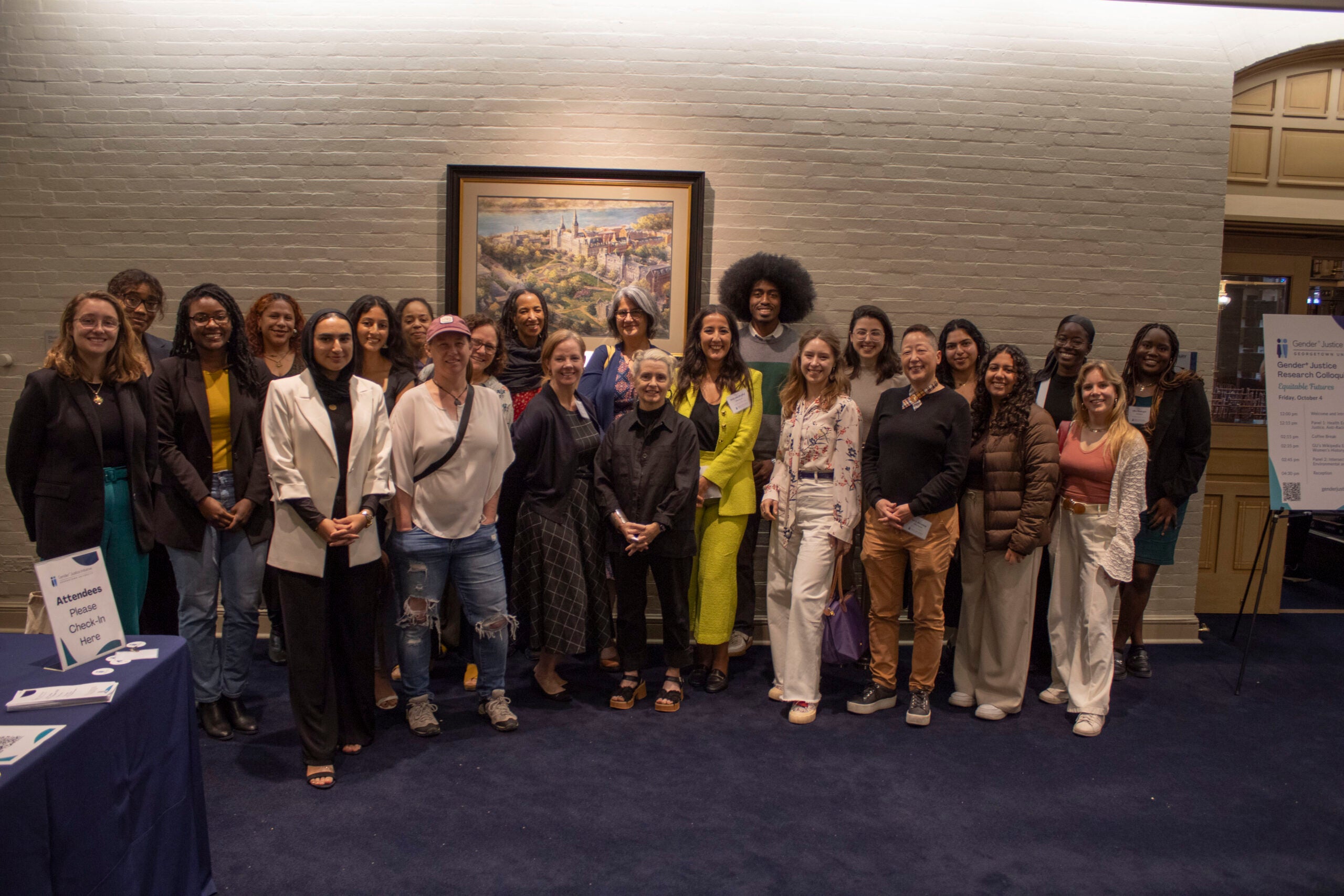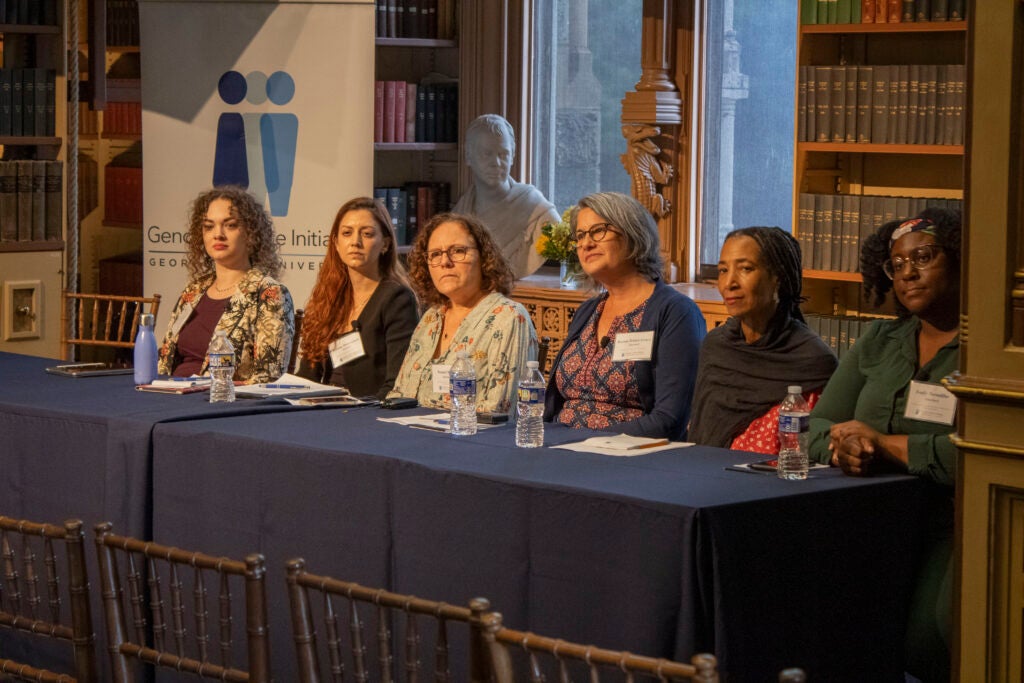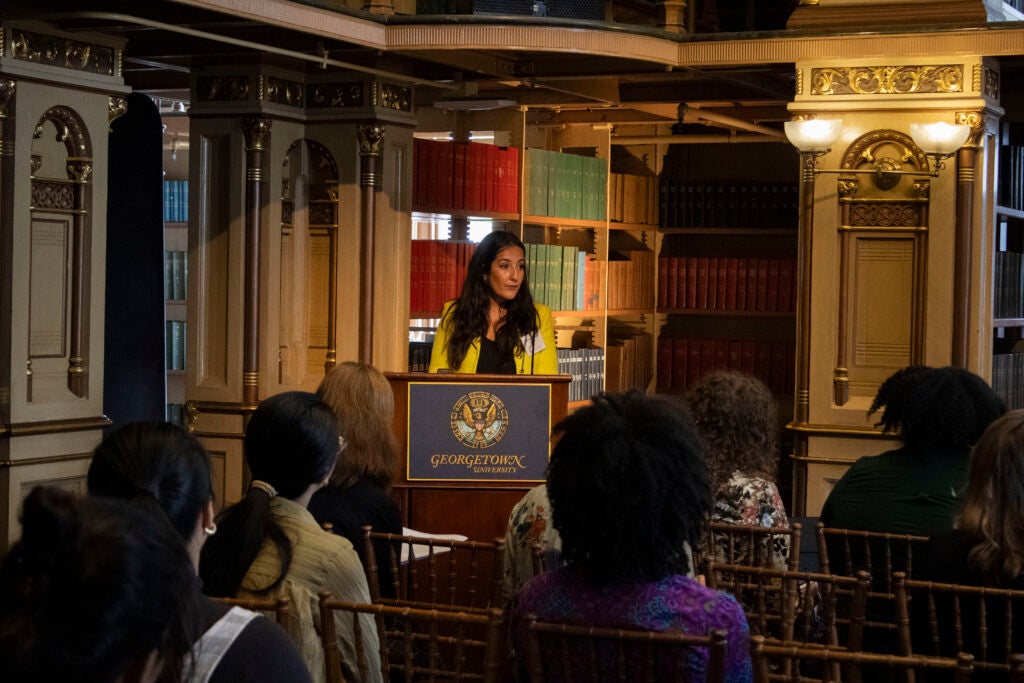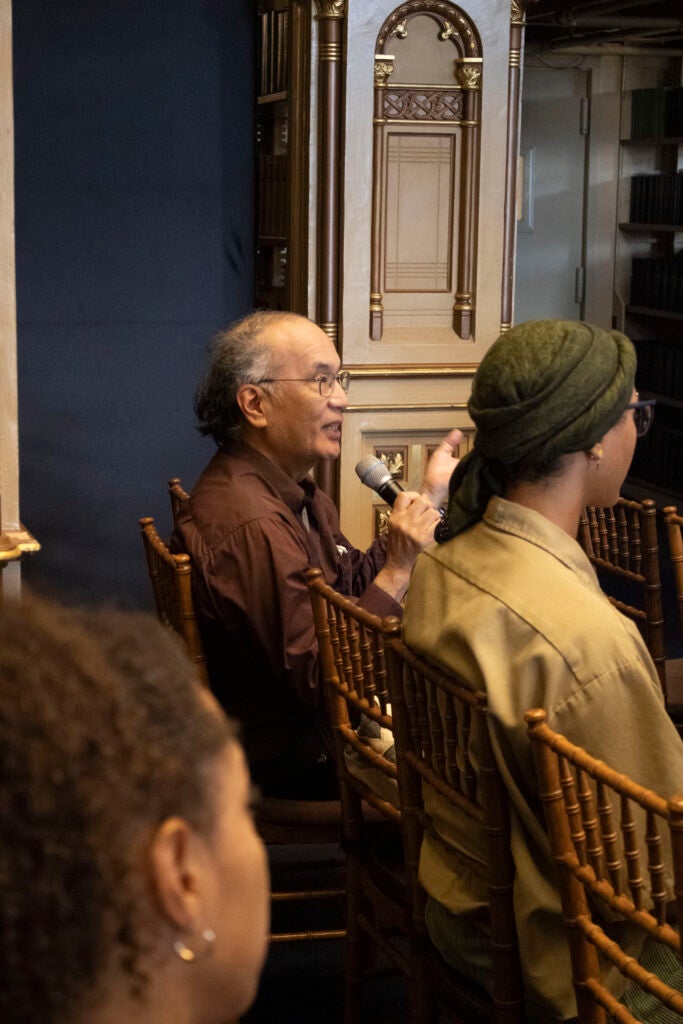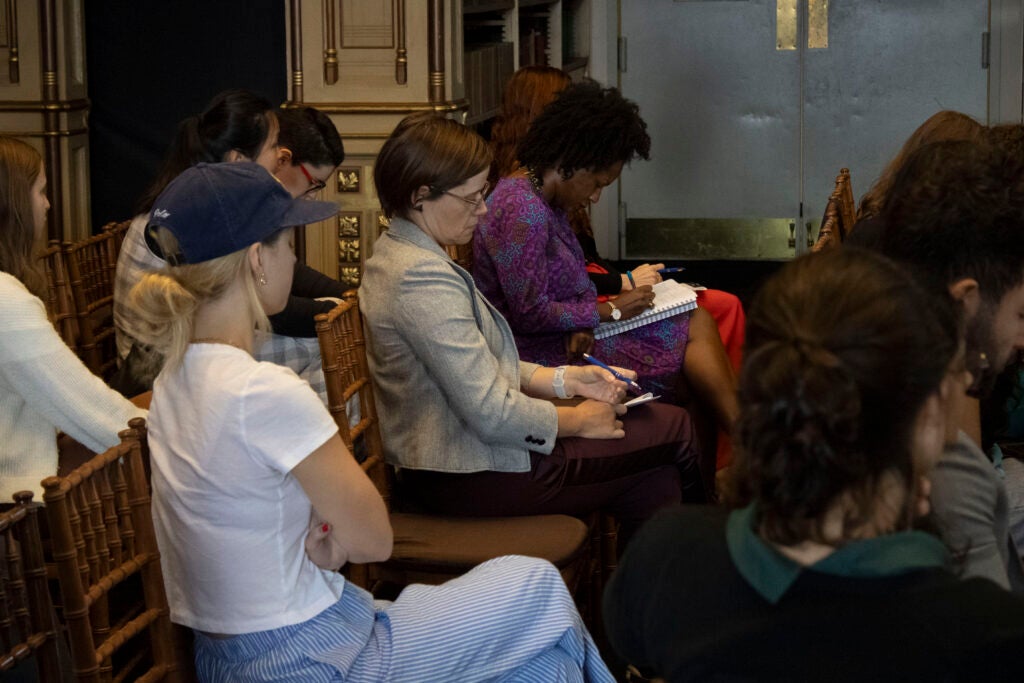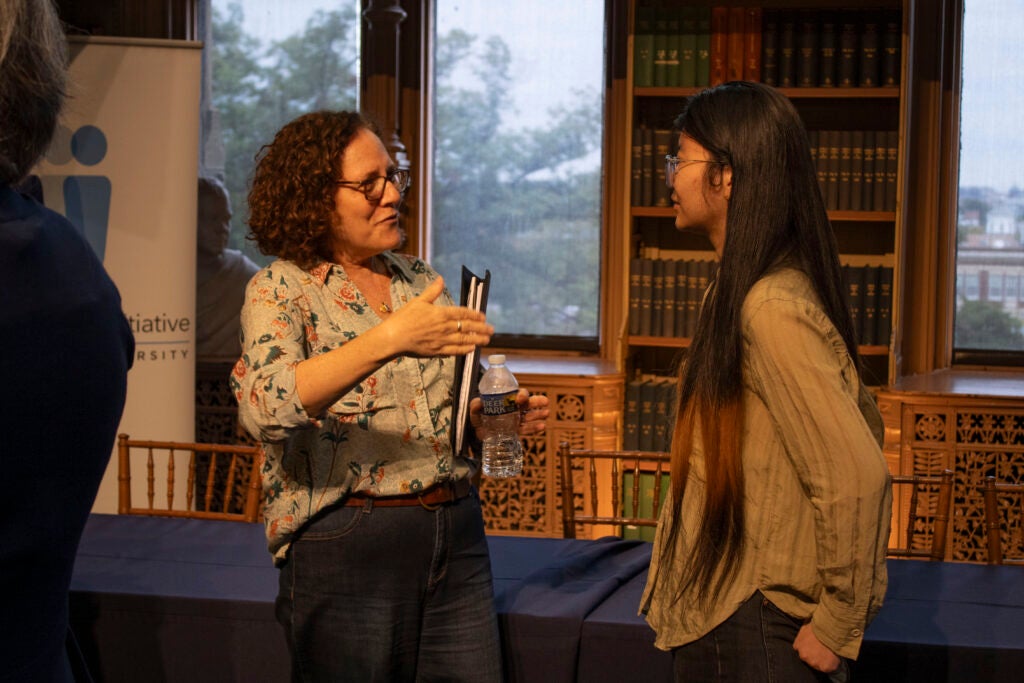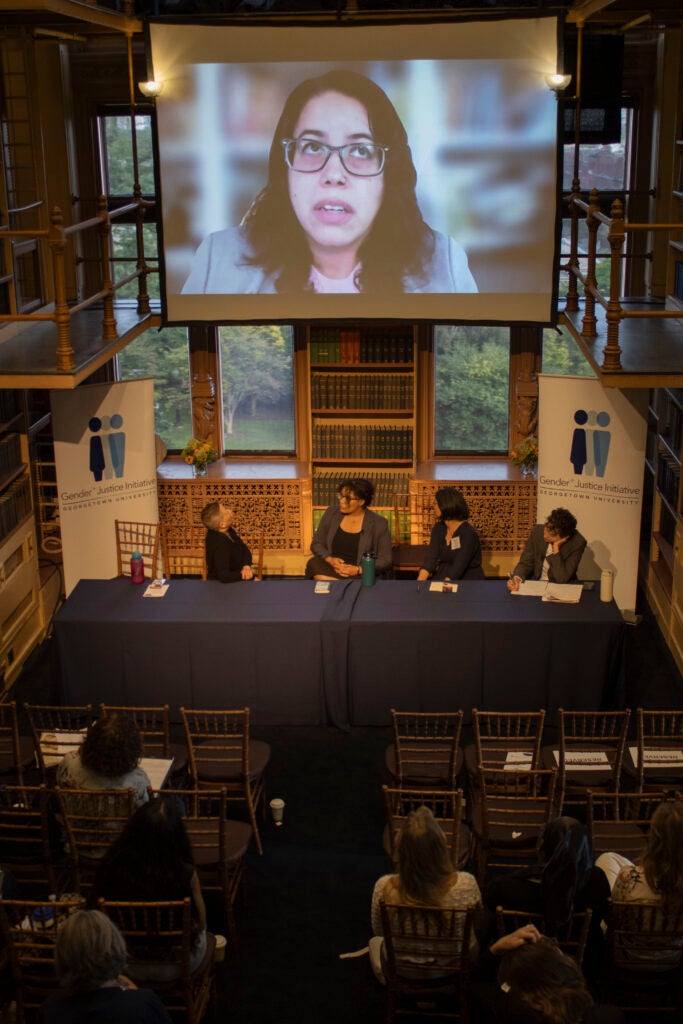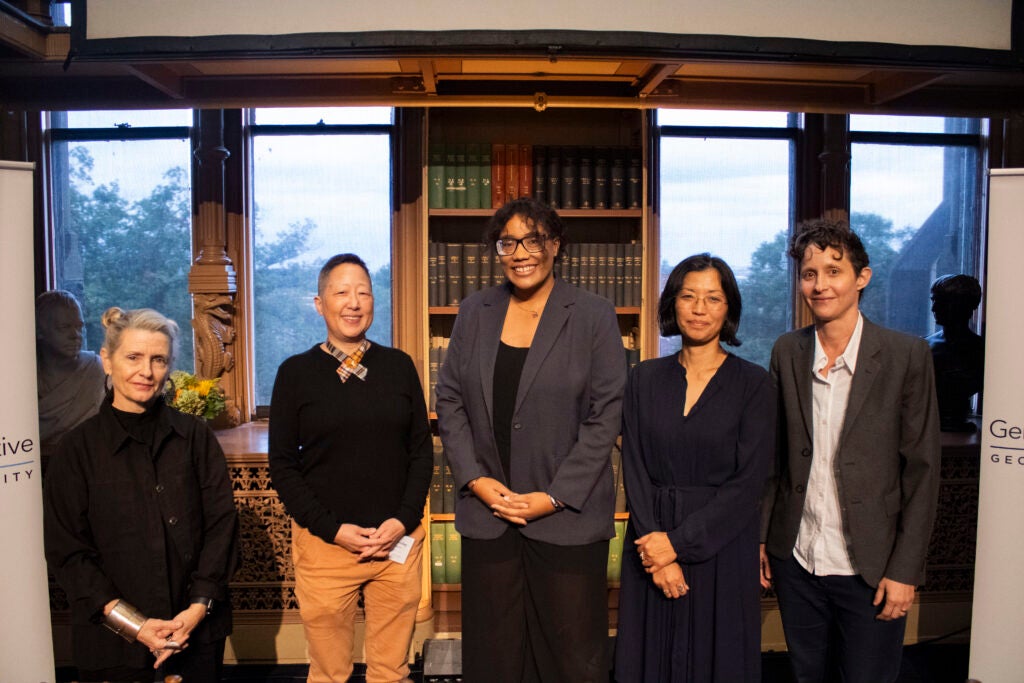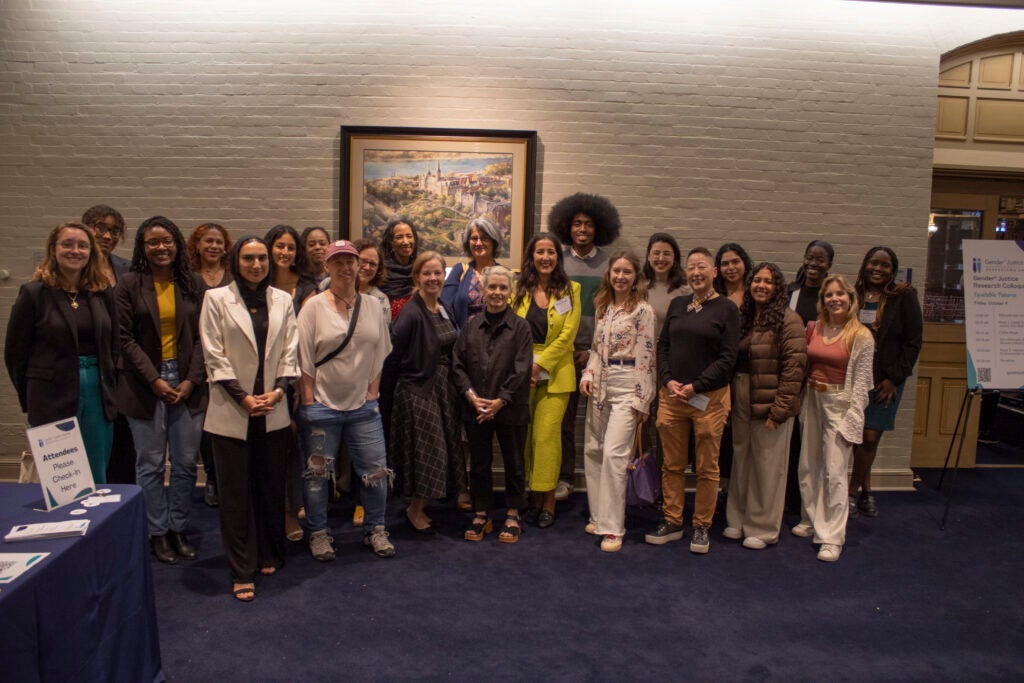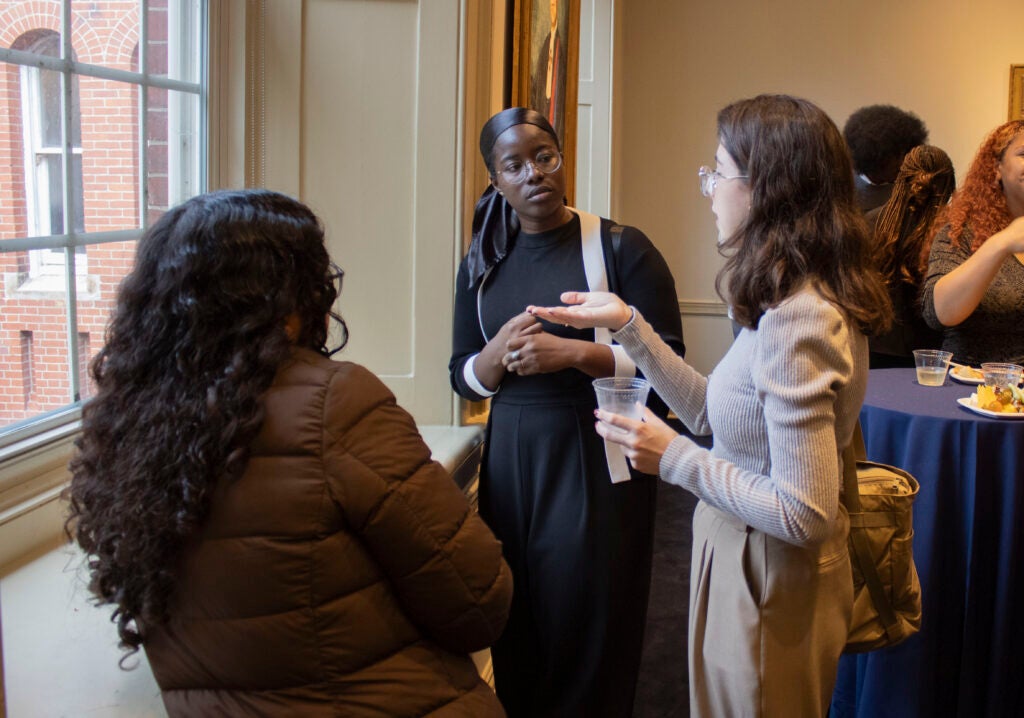Research Colloquium 2024
The Gender+ Justice Initiative presents its sixth Research Colloquium!
Friday, October 4, 2024 | 12:00 PM – 5:30 PM – Reception after 4:30 PM | Hybrid Event | Location: Riggs Library, 3rd Floor, Healy Hall, Georgetown University Main Campus
Watch the recorded videos below.
Panel 1: Health Equity: Reproductive Justice, Anti-Racism, and Public Policy
Time stamps for each presentation available in the video description.
Panel 2: Intersectional Approaches to Environmental and Social Justice
Time stamps for each presentation available in the video description.
This year, we are pleased to introduce thematic areas to foster in-depth conversations on timely and pressing issues. Under the theme of ‘Equitable Futures,’ the detailed program and topic areas for the 2024 G+JI colloquium panels are listed below:
